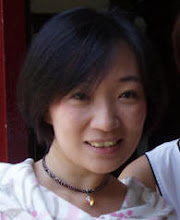The man who lost a 'coral kingdom'
By Nick Squires
BBC News, Cocos Keeling Islands
For many, living on an tropical island away from the cares of everyday life is the ultimate dream. But, for a family of British merchant adventurers, the dream became a reality when they ran a group of islands as a private fiefdom for 150 years.
對許許多多的人而言,住在熱帶小島上遠離塵囂是終其一生的夢想。但是對一個英國商人冒險家家族來說,早在150年前,他們把幾座島嶼當成自己的封地來經營時,這個夢想就已經實現了。
From the air, they look like a chain of pearls wrapped around a giant opal. Twenty six tiny islands enclosing a turquoise and jade lagoon.
二十六座小島將透著藍綠色及碧玉色的瀉湖圈在中央。從空中俯瞰,像極了一串溫潤的珍珠纏繞鑲嵌在一顆巨大的蛋白石周圍。
Stepping out of the aircraft, I was enveloped by tropical heat.
步下飛機,迎面襲來的熱帶暑氣將我整個人罩住。
Palm trees rustled in the breeze and there was the distant sound of surf crashing on a reef. The locals were either barefoot or in flip-flops.
棕櫚樹在輕柔的微風中窸窸窣窣的響著,遠處傳來陣陣浪花拍打在礁石上的聲音。當地人不是赤著腳就是穿拖鞋。
Adrift in the middle of the Indian Ocean, the Cocos Keeling Islands lie halfway between Australia and Sri Lanka.
Cocos Keeling(可可斯)群島位於澳洲與斯里蘭卡中途,浮沉在印度洋的中央。
Home to just 500 people, they are an Australian territory, but on many maps of the continent, they do not even feature.
這擁有500位居民的家,現在是澳洲的領土,但許多澳洲地圖上卻根本沒有把它標示出來。
Which is a shame, because the islands have an intriguing history.
這真是一大憾事,因為這幾座島嶼藏著一段曲折的歷史故事。
Royal connections
They were uninhabited until the 1820s, when a small settlement was established by a Scottish adventurer named John Clunies-Ross.
一直到1820年才開始有人在島上定居,是由一位叫做John Clunies-Ross的蘇格蘭探險家,在那時開墾出來的小小拓居地。
He was originally from Shetland and must have delighted in exchanging his frigid homeland for these balmy, sun-kissed isles. He set about planting hundreds of coconut palms and brought in Malay workers to harvest the nuts.
他原先是住在Shetland(設得蘭郡,英國最北端的群島),拿自己寒冷的家園換得這幾座陽光拂照的宜人小島時,想必一定是樂不可支。他著手栽種幾百棵椰子樹,並且還引進馬來人的勞工好採收椰子。
Successive generations of Clunies-Rosses built up a business empire based on copra, the dried flesh of coconuts traded for its oil. Their tenure over their exotic adopted home was confirmed in 1886, when Queen Victoria granted them possession of the islands in perpetuity.
Clunies-Rosses後繼的代代子孫終於建立起一個企業王國,是以做copra ─ 椰子乾起家,好換取椰子油。一直到1886年英國維多莉亞女皇授予他們這幾座島嶼的永久所有權之後,他們才確定對這個自己所選定、充滿異國風情的家有了佔有權。
They styled themselves the "kings" of the Cocos.
他們稱自己為Cocos(可可斯)國王。
Remarkably, their rule lasted right up until 1978, when the last "king", also called John Clunies-Ross, was forced to sell the islands to Australia for £2.5m ($4.75m).
他們的統治僅止於1978年,格外引人注目地,這最後一屆的"國王"也叫做John Clunies-Ross,他被迫以兩千五百萬英磅將他們的島嶼賣給澳洲政府。
He had come under pressure from the Australian Government and its trades unions, as well as the United Nations, none of whom was too enamoured by his feudal regime.
他遭受了來自澳洲政府、工會以及美國的壓力,但是沒有一個為他的封地統治所吸引。
'A dagger in his belt'
The Clunies-Ross family lived in a grand colonial mansion which still stands to this day.
Clunies-Ross家族居住在一幢宏偉殖民時代的大廈,仍屹立至今。
To reach Oceania House, I took a ferry from West Island across the lagoon to Home Island, the only other inhabited scrap of land in the territory.
我從West Island (西島)搭乘渡輪跨越整個瀉湖來到Home Island(主島),是整個領地上另一個唯一有住人的小地方,打算去參觀Oceania House。(※即Clunies-Ross家族居住的大廈)
Arriving was like suddenly stepping into south-east Asia.
抵達的那一刻,彷彿是來到了東南亞。
The island is home to 350 ethnic Malays, the descendants of the original plantation workers. Women wear headscarves, street names are in Malay and there are several mosques, all of which makes Oceania House all the more incongruous. It has the look and feel of a Scottish country estate.
這個島上住了350位馬來族人,全部都是當初來此地開墾栽種的勞工後裔。女人戴著頭巾,街道以馬來語命名,而且還建有幾座清真寺,這一切更加突顯Oceania House的不協調。這座樓宇有著蘇格蘭鄉村莊園的外觀和感覺。
Wandering through the overgrown gardens, I came across a stone Celtic cross inscribed with the names of the Clunies-Ross ancestors.
信步在過於枝繁葉茂的園林中,我不經意的瞧見一座石雕的塞爾特十字架,上面銘刻了Clunies-Ross歷代祖先的名字。
John Clunies-Ross used to stride around his tiny coral kingdom barefoot, a dagger tucked into his trouser belt.
John Clunies-Ross曾經常赤著腳大步走在他小小的珊瑚王國,褲腰間還藏著一把匕首。
He paid his Malay workers in Cocos rupees, a currency he minted himself and which could only be redeemed at the company store.
他用Cocos盧比來支付薪水給他的馬來勞工,這是一種他自己鑄造的貨幣,也只能在他開設的公司商店裡兌換。
Workers who wanted to leave the islands were told they could never return.
想離開這裡的員工則會被下令永遠不必再回來了。
Despite such strictures, opinion among the Malays today is divided as to whether the Clunies-Rosses were exploitative colonialists or benevolent father figures.
儘管是這樣的嚴苛,在當今馬來人的意見中還是分為兩派,Clunies-Rosse家族不是有如剝削的殖民主義者,就是都像父親一般慈愛。
Wages were low, but water, electricity and schooling were free.
勞工的工資很低廉,但是水、電和就學則是免費。
Sixty-seven-year-old Cree bin Haig worked as a boatman back in the old days: "Mr Clunies-Ross was a good man," he told me, throwing scraps to the chickens in his backyard.
67歲的Cree bin Haig是昔日的船工,他這樣告訴我: "Clunies-Ross是個好人",說著還邊丟了一些吃剩的東西給養在他後院的雞。
"Although we have better houses and food now, the Australian Government doesn't let us shoot birds and hunt turtles like the family allowed us to."
"雖然我們現在吃住都比過去來得好,但是澳洲政府不准我們獵鳥、烏龜,在過去這個家族是允許我們這麼做的。"
After being forced to sell his beloved islands, John Clunies-Ross eventually went bankrupt through a failed shipping line.
被迫賣掉自己鐘愛的島嶼後,John Clunies-Ross 最終卻因為一間失敗的海運公司而宣告破產。
Now approaching 80, he lives in suburban obscurity in Perth, in Western Australia. But his son, Johnny Clunies-Ross, still calls the islands home.
現在年邁的他已將近80歲,淡然的住在西澳Perth近郊的一個隱密的小地方。但是他的兒子Johnny Clunies-Ross仍舊把那些島視為家。
'Modest living'
Back on West Island, it did not take long for me to track him down.
回到West Island(西島)上,我沒多久就找到他。
He and his four siblings grew up amid the grandeur of Oceania House, but he now lives in a bungalow overlooking the airstrip.
他和他四個兄弟姊妹是在宏偉的Oceania House長大,但現在的他卻是住在一間可以俯瞰機場的小平房裡。
Parked outside was a battered jeep riddled with rust. In place of his father's immaculate white shirts and pressed trousers, he was in a faded T-shirt and shorts.
停在屋外的是一輛破舊的吉普車,上面佈滿了鐵鏽。不同於他父親潔白無瑕的襯衫與緊實的長褲,他穿著一件褪色的T-shirt和短褲。
Had his family's reign not come to an end, he would now be the sixth "king" of the Cocos. So, is he disappointed?
如果他的家族還繼續統治,那麼他就會是Cocos第六屆的國王。那麼,他是不是會感到很失望呢?
"I was upset at the time," he admitted with a shrug.
"我當時是很沮喪," 他聳聳肩無奈的承認。
"I was 21 and I'd been brought up to do the job. But even in the old man's time, it had become anachronistic. It had to change."
"我當時只有21歲,我從小就是被教育來接這份工作。但是,就算在老爸那個時代,這也已經過時了。不改變是不行的。"
Where his forbears made a fortune from coconuts, Johnny is now forging a more modest living from another island resource, giant clams.
在他祖先以椰子致富的地方,Johnny現在用島上另一種資源─巨蚌,努力求取一個比較合理的生活。
He breeds them in tanks and sells them to the aquarium trade in Europe and the US.
他把巨蚌養在池塘裡,再賣到歐美的水族館。
It is an unusual line of work, but one which enables Johnny to remain on the islands his family has inhabited since 1827.
這是個特殊的職業,但卻可以讓Johnny留在這個他家族早在1827年就已定居的島上。
The man who would have been "king" seems content with his lot.
這個原本應當是"國王"的男人,現在看來似乎對自己的命運感到很滿足。
On my last evening I met him again in the islands' only watering hole, the Cocos Club.
在這裡的最後一個夜晚,我又遇到他,在這個島上唯一的一間酒吧裡,the Cocos俱樂部。
He was still in shorts and a T-shirt, drinking a beer, chatting with friends.
他仍舊是一身的T-shirt和短褲,和他的朋友一邊喝啤酒一邊閒聊。
An ordinary bloke, with an extraordinary past, in one of the most beautiful and unspoilt places in the world.
一個平凡的小夥子,有著不平凡的過去,生活在這世上最美的、還未遭到破壞的一個人間淨土。
Story from BBC NEWS:
http://news.bbc.co.uk/2/hi/programmes/from_our_own_correspondent/6730047.stm
Published: 2007/06/07 16:26:52 GMT
© BBC MMVII
2007年10月25日 星期四
The man who lost a 'coral kingdom'
訂閱:
張貼留言 (Atom)


沒有留言:
張貼留言